New Directors/New Films 2022: Highlights
This article appeared in the April 14, 2022 edition of The Film Comment Letter, our free weekly newsletter featuring original film criticism and writing. Sign up for the Letter here.
The annual New Directors/New Films festival is one of the highlights of the New York film calendar, and a reliable harbinger of the defining cinematic talents of the years to come. In advance of this year’s edition, which runs April 20 to May 1 at Film at Lincoln Center and the Museum of Modern Art, Film Comment contributors spotlight some of the must-see titles in the lineup.
The African Desperate (Martine Syms, 2022)
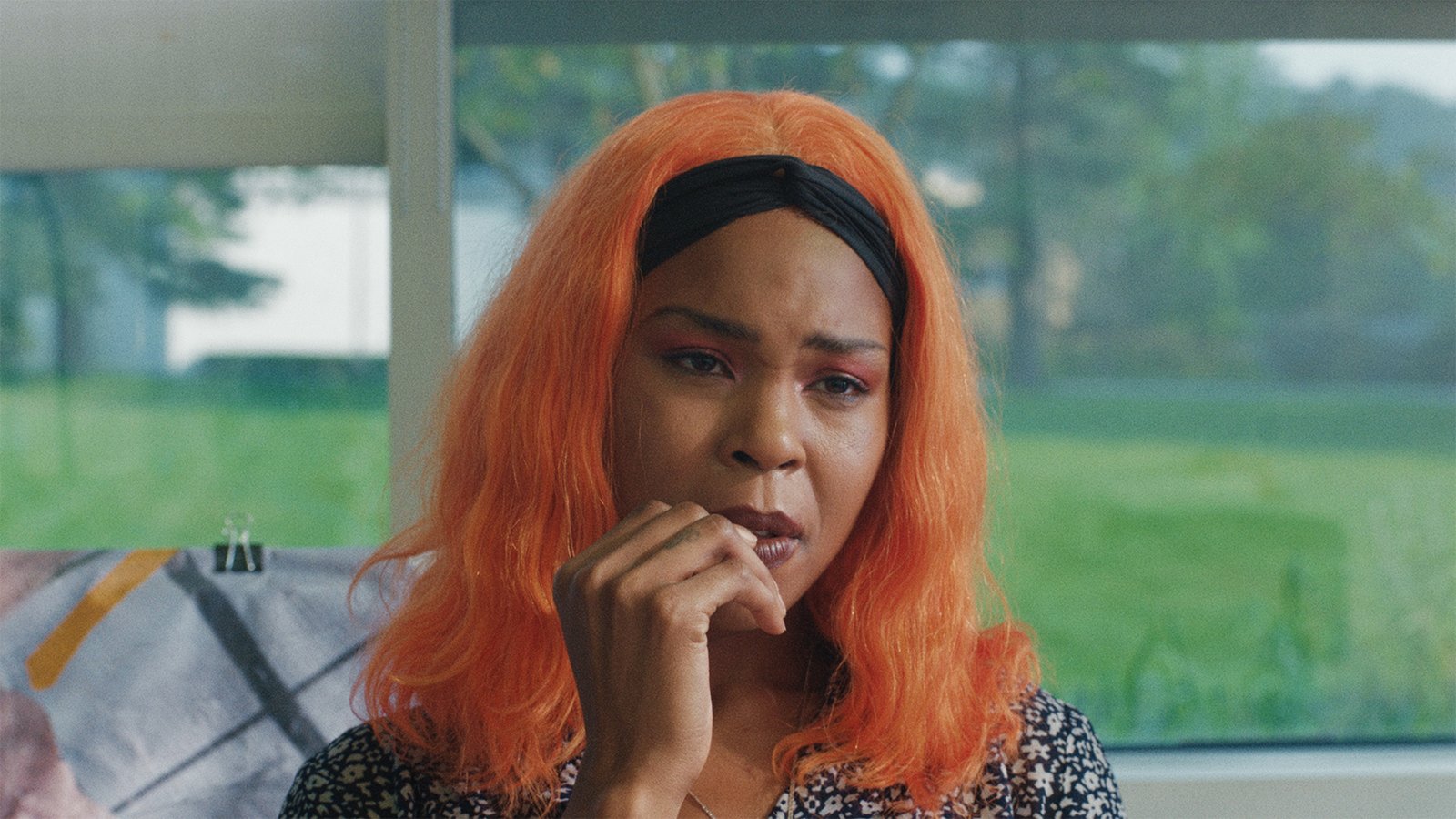
Photo Credit: Natalie James
The African Desperate, the debut film by visual artist Martine Syms, abounds in bold text, bolder colors, and wry humor struck through with a Very-Online sensibility to explore the construction of Black feminine identity. Unfolding over the course of 24 hours at an art school in scenic upstate New York, the film captures a pseudo-bohemian milieu of primarily white students and staff, many of whom can’t seem to articulate their feelings about art without spewing academic jargon—or showing their asses. Syms counters this drudgery by invoking the snappy rhythms of reaction videos, GIFs, and memes prominent on Black Twitter—many of which flash spontaneously on the screen as our freshly graduated protagonist, Palace Bryant (artist Diamond Stingily), contends with the caucasity in her midst. Syms’s vivid use of color ultimately engulfs the screen, swirling around each character that our heroine—fueled by a cocktail of drugs—encounters on her Odyssey-like last hurrah, bidding it all good riddance before heading to her hometown of Chicago the next morning. It’s a surreally immersive and snickering good time, and Palace—a deadpan, no-nonsense woman with a languorous gait, a mane of fluorescent orange hair, and a winsome scowl—emerges as one of the most lived-in and gloriously unpredictable characters of the year, even (or especially?) as she’s liable to be marching around with a bit of vomit in her hair.—Beatrice Loayza
The Cathedral (Ricky D’Ambrose, 2021)
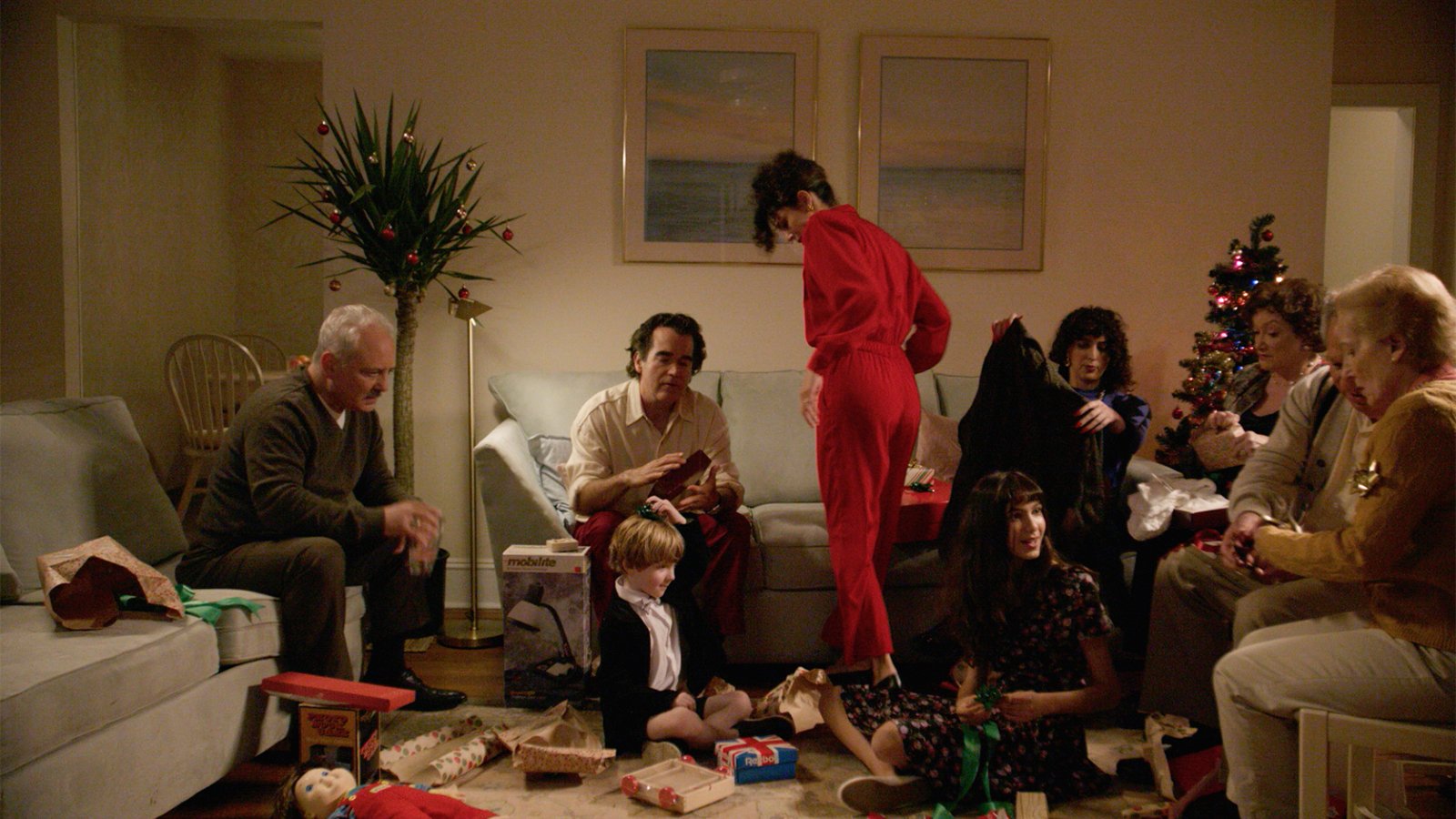
Photo Credit: Tarek Shoukri
Dos Estaciones (Juan Pablo González, 2022)
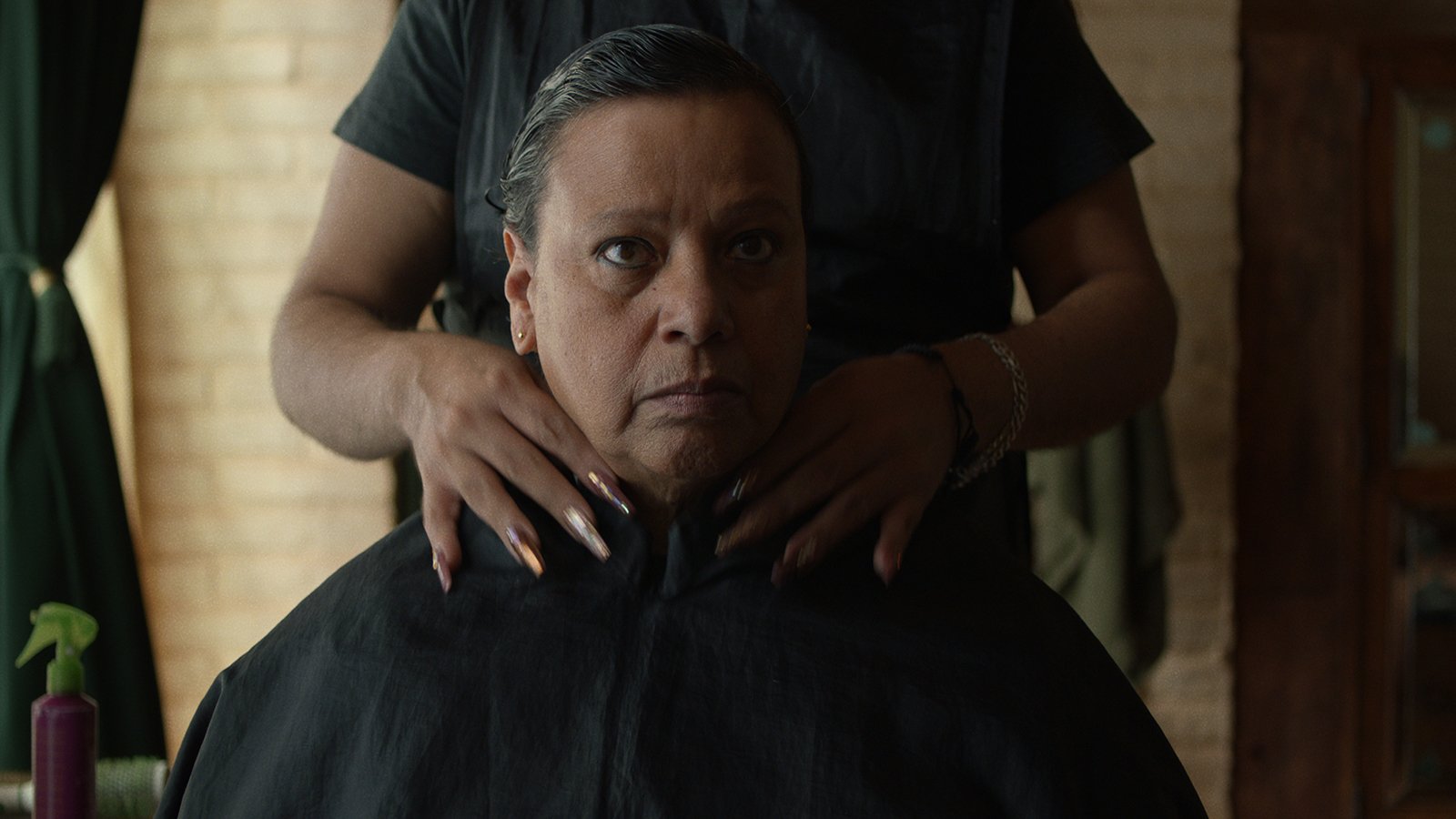
Photo Credit: Jamie Gonçalves
With business prospects looking grim due to competition from U.S. corporations, imperturbable tequila baroness María García (Teresa Sánchez) begins to buckle under the pressure of keeping her family-owned factory afloat. Sánchez portrays the tight-lipped businesswoman as a loner, with her close-cropped hair, jeans-and-flannel wardrobe, and loping gait. When a young bookkeeper (Rafaela Fuentes) comes looking for work, María is blinded to the obvious signs of corporate espionage by her desire for companionship. Dos Estaciones is the debut narrative feature from Juan Pablo González, whose prior work—including his meditative documentary Caballerango (2018)—has often explored life in the high desert of Jalisco, the director’s home state and the source of much of the world’s tequila. Here, González and DP Gerardo Guerra’s camera oscillates languorously between tight close-ups of María’s careworn face and wide, almost abstract framings of burning agave fields and the jutting foothills that surround her estate. A detour into the life of María’s hairdresser (local trans woman Tatín Vera playing a version of herself, like many of the nonprofessionals in the cast) pulls the film toward nonfiction. The bravura closing shot tracks Tatín’s errands through the village as news of María’s desperate final gambit filters across the radio, beautifully weaving together the film’s documentary observations and melodramatic currents into a moving portrait of economic strife and personal loss.—Clinton Krute
Full Time (Éric Gravel, 2021)

Photo Credit: NovoProd Cinéma
Tracking a hectic week in the life of a single mother, Éric Gravel’s Full Time potently blends the social realism of the Dardenne brothers with the nerve-racking intensity of the Safdies’ Uncut Gems. Julie (Laure Calamy) works a demanding job as a chambermaid in a five-star Parisian hotel; between managing a staff and literally cleaning up the wealthy guests’ shit, she takes care of her two children in the countryside while evading threatening calls from the bank about her mortgage and trying to find a better job. When a transit strike complicates her commute—making her late to work and also to retrieve her children from an overtaxed neighbor—Julie’s life finally, systematically unravels. Fueled by Calamy’s stellar lead performance and Irène Drésel’s pulsating score, Full Time depicts the French social fabric as a complex stitch of tenuous compassion and cruel indifference, with the latter constantly threatening to render Julie jobless or her children wards of the state. Gravel mines a bottomless well of sympathy for Julie, but refuses to paint her as either a victim (though she’s clearly one of circumstance) or a hero. Rather, her ingenuity and sheer determination are depicted as the only practical responses to the possibility of penury. It’s a shrewd choice that ultimately lends weight to even her smallest accomplishments, like planning a birthday party for her young son while her world falls apart.—Vikram Murthi
Happening (Audrey Diwan, 2021)
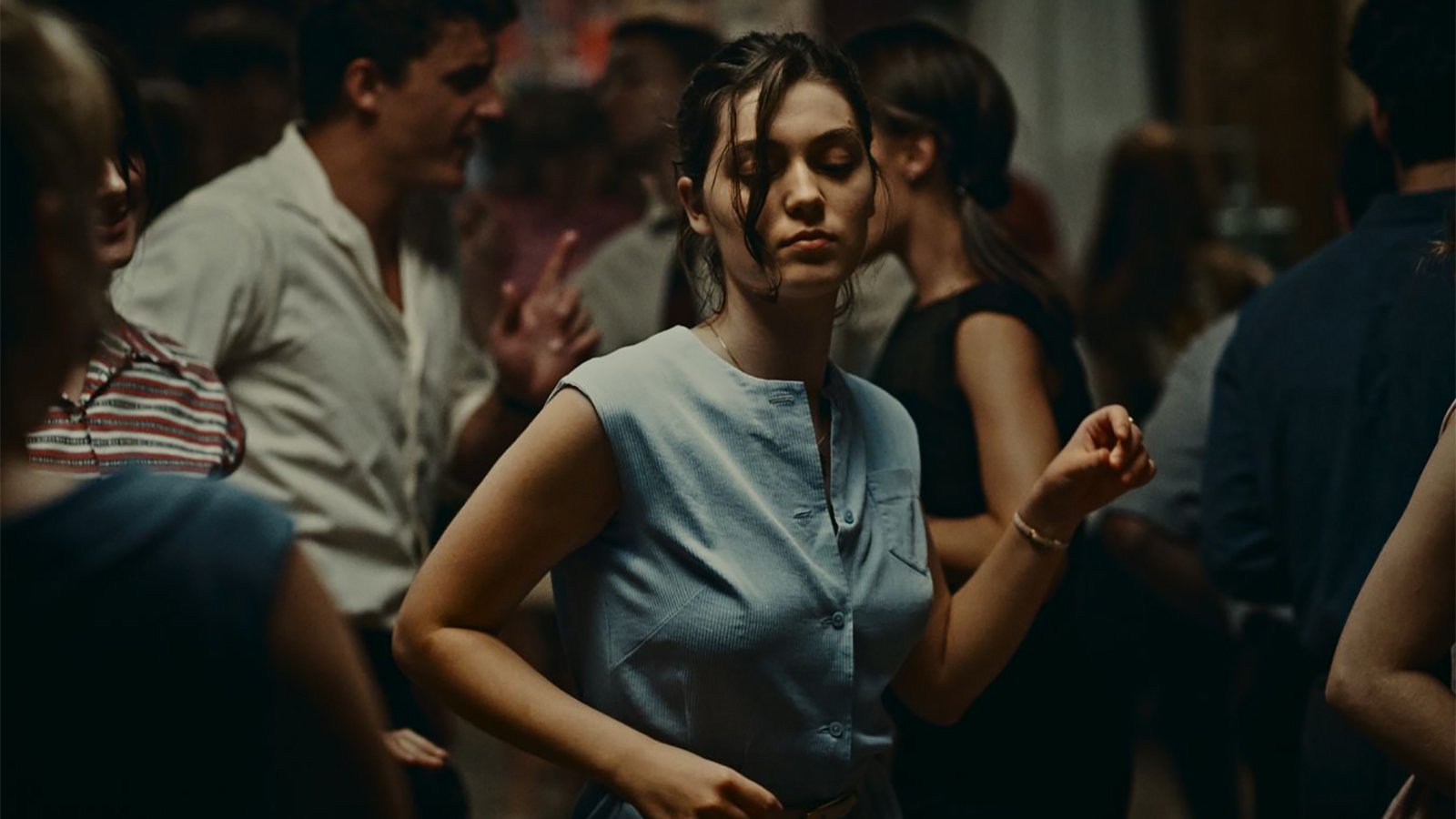
Photo Credit: AMC Networks
Adapted from Premio Hemingway–winning author Annie Ernaux’s 2000 memoir of the same name, this quietly entrancing film recounts, week-by-week, the writer’s journey to end an unplanned pregnancy in the 1960s, when abortion was still a criminal act in France. DP Laurent Tangy’s tight lensing makes us we feel like part of Anne (Anamaria Vartolomei, 90 percent blue eyes) and her best friends’ gang, as they fashion their tame brassieres into push-ups before a night out and nervously avoid eye contact when Anne shares her closely guarded secret. The drama is awash in the poetry of euphemism: the words pregnancy and abortion are seldom uttered in Happening’s 100 minutes. When Anne’s teacher inquires whether she has missed class due to being sick, she nods and responds, “The illness that strikes only women. It turns them into housewives.” Happening’s images of pregnancy termination might be considered graphic by some, but the body’s pain takes a lesser role here than Anne’s feelings about these experiences, and whether she can withstand them. The film, the second feature from Audrey Diwan, is quite remote from contemporary girlhood, where the most vexing questions about bodies can be answered with a few clicks. By the same token, this story possesses a universal theme: how much pain would you withstand to preserve your own freedom?—Tomasin Fonseca
Hot in Day, Cold at Night (Park Song-yeol, 2021)
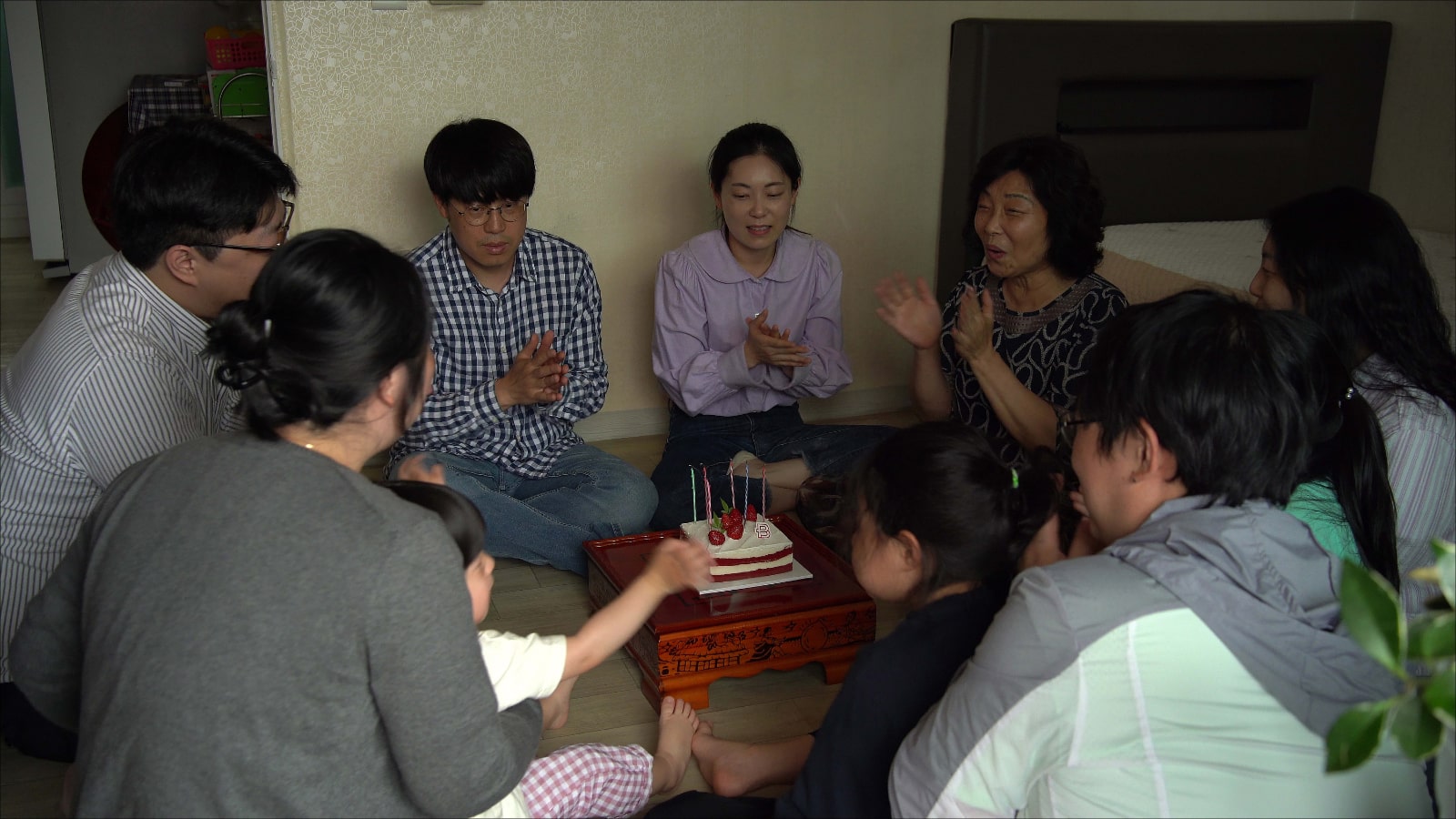
Photo Credit: Saranghaja
Lacking steady employment and running relentlessly on a daily treadmill of gig work, married couple Young-tae and Jeong-hee are trapped in a comedy of first impressions. Despite their exhaustion, they can’t afford to let the veil of punctuality or cordiality slip—not when a bad customer review could lead to another unpaid bill. Old friends deliver (occasionally bullshit) promises of job opportunities—i.e., more strangers to smile for. One such acquaintance, Myung-su, has borrowed a camera from them that he seems unlikely to return. As they think of what the world owes them, the couple’s resentment grows. But this disappointment is a tolerable one. What’s truly frightening, as they consider taking a private loan, is the prospect of digging a hole they can’t escape from. The austere construction and bone-dry humor of Hot in Day, Cold at Night never directly reference COVID-19, but the film’s evacuated exteriors and stifling interiors reflect the lacuna of public life created by the virus. There are few safety nets, and debt can never be erased, only displaced. By depicting the immediate world of a couple, Hot in Day, Cold at Night takes the temperature of the pandemic at the most intimate points of contact.—Emerson Goo







